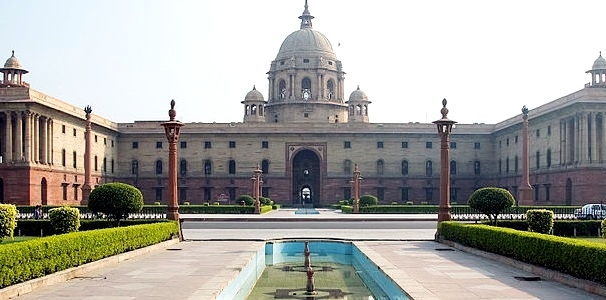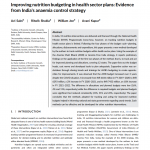
#2 WALKING THE TIGHTROPE: THE FUTURE OF THE IAS
29 June 2018
As the Indian bureaucracy completes over 160 years, former Indian Administrative Service (IAS) officer T.R. Raghunanandan reflects on the decisions being taken by the government to reform the IAS and the impact these are likely to have. The first part of this blog can be found here.
Once Officer Trainees are selected, they are all directed to join the Common Foundation Course, an orientation programme that usually starts in the August of every year. Since more than 500 individuals now get selected, there is not enough accommodation in the Lal Bahadur Shastri National Academy of Administration, Mussoorie; so a parallel Common Foundation Course is held in the National Academy of Direct Taxes, Nagpur.
The Common Foundation Course is considered a big milestone; not in terms of the training content imparted, but simply because it is the professional gateway to what is a lifetime of service in the government, for most participants. The academic content comprises hardly anything worth remembering. Once one clears the entrance exam into the civil services, the classes on subjects such as Constitutional law or public administration does not hold one’s attention. The Foundation Course therefore relies on four kinds of activities to keep the participants active and interested.
The first are the classroom sessions where the resource persons are invited experts in their respective fields, or are civil servants with relevant experience. Usually, instead of regular lectures, panel discussions are organised, which stoke the exchange of several perspectives. These give newly recruited officers a preview into life in the government. The second are the after office hours activities. Life is an active social whirl, with plenty of societies formed by the officer trainees, say, for example, in music, theatre, quizzing and suchlike, which conduct competitions and discover that talents of the Officer Trainees go well beyond the ability to pass a tough examination. The third are group activities that involve traveling and immersion into various situations, known as ‘attachments’. Officer trainees, usually in small groups, are attached to various agencies or offices for this immersion. There is a village attachment and a tribal one, as also attachments with prominent NGOs, agricultural universities, Public Sector Undertakings and so on. Officers are attached to units of the armed forces as well. Some of these are undertaken in the Common Foundation Course while others are spread over a two year probationary period. The last are tests and project reports, in which officers, either individually or collectively, reflect upon their experiences, do a modicum of academic study and submit a final report on a chosen subject.
There have been suggestions in the air for more than thirty years that the marks obtained, both in the examinations conducted in the Academy for all participants in the Common Foundation Course, as also the internal assessments based on an assessment of the academic and non academic performance of each candidate, ought to be reckoned for the allocation of services and inter-se ranking. The Kothari Committee on reforms to the selection process for the Civil Services was the first to make this suggestion. However, the government did not accept this recommendation, stating that the assessment process conducted by the Academy was prone to be distorted due to political or other pressures. The government has recently again reopened this issue and asked the suggestion of states on what they thought off the idea.
Will this idea of testing the officers during the Foundation course have the effect of improving the quality of the civil services, or is it another extension of the torture of the civil services examination?
Personally, I think it is a tiresome idea, for several reasons. First, officers who finally make the grade have undergone one of the toughest examination processes, which has screened them from thousand others who did not make it. It just is not fair if a fourth layer of high stakes examinations are going to be held, in order to determine where the officer would be finally slotted. Second, a lot of officers selected for the Foundation Course don’t attend it, as they are again appearing for the civil services examination. How they will be assessed is not known. Third, the UPSC has been a bulwark of impartiality and credibility, when it comes to the selection of civil servants. The Constitution does not envisage that any part of the selection process would be undertaken by a body other than the UPSC. It would be a dilution of this approach if the government wants to conduct another final screening examination before assigning the state in which the officer will serve.
I would let the Foundation Course be. It is meant to be a lark. It is meant to build a sense of unity between people from diverse professions and interest. It is meant to develop social skills, particularly in those who have become mindless recluses because of repeatedly writing the civil services examination. Adding one layer more to the three stage recruitment process is not worth the trouble; it only vitiates the celebratory and cheerful atmosphere of the Academy and replaces it with grim faced examination fever. It would not allow any time for cathartic celebration. I think everybody who writes the civil services exam and succeeds at it, deserves a little bit of time to luxuriate in the feeling of success.





